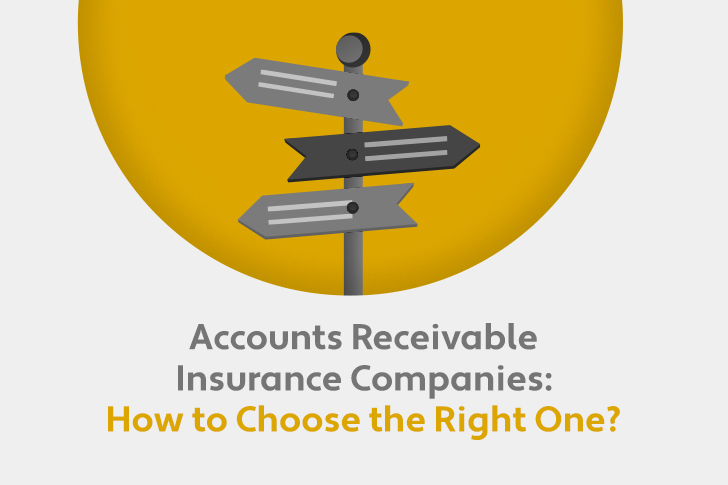Businesses need defying strategies to stand out in the market. That’s why getting creative with selling can add to the company’s profit. One way to minimize bad debt and mark effective sales is via account receivables. However, with so many companies offering AR services, it can take time to know where to start.
That’s where we come in. We’ve put together this handy guide to help you select the right AR insurance company for your business. So, whether you’re just starting or looking for a new provider, read on for tips on choosing the exemplary AR service.
What Are Accounts Receivable Services?
Accounts receivable services, or AR services, help you manage your accounts receivable (AR) and collections. This can include anything from debt collection to invoice management to dunning letters. It’s a one-stop shop for all your A/R needs.
When it comes time to choose an AR service, there are a few things you’ll need to keep in mind. One of the most important is the company’s size and scope. How big is the company? What kind of clients does it work with? What industries does it specialize in?
Another critical factor is the company’s experience and reputation. You’ll want to be sure that the company has a proven track record of success and knows how to handle complex collections cases.
Finally, be sure to ask about the company’s rates and fees. Will the service be a fixed cost, or will you be charged on a per-invoice basis? What are the late payment fees? How about collection fees? Ensure you understand all the costs involved before signing up for any service.
What Should I Look for in an Accounts Receivable Services Provider?
When selecting an accounts receivable insurance company, many factors go into consideration to fit the needs. Here are a few of the most important:
First, you’ll want to consider the company’s financial stability. Make sure they can meet their obligations, both now and in the future.
You’ll also want to look at the company’s track record. Have they been in business for a while? Do they have a good reputation? Are their customers happy with the services they’ve received?
Finally, it’s essential to ensure that the company is licensed and insured. This will protect you if something goes wrong.
Benefits of Accounts Receivable Insurance Coverage
When you’re in the market for accounts receivable insurance, it’s essential to know the benefits of selecting the right provider.
Some of the top benefits you can expect include:
1.Expand your sales horizon
When you want to enter new markets, trade credit insurance is the most useful. This is especially true when there is an export component, and the market is in another nation. The best trade insurance firms cover your receivables and give your clients professional advice and due diligence.
You may grow sales and attract new clients by offering them the finest credit terms without running the risk of late payments.
2.Protection from non-payment or late payment by customers
If you can grant your consumers credit with favorable terms, your business has a significant edge over its rivals.
Either the credit limit or the time frame, such as Net 30/Net 60/Net 90 terms that permit your clients to pay in 30/60/90 days, respectively, can be the determining factor. You may give your clients good trade credit without worrying about non-payment when you have insurance on your accounts receivable.
Even though your consumers enjoy credit, there is always a chance that they will only pay you back on time. It depends on how you weigh the benefits and risks of giving your clients trade credit. Accounts receivable insurance reduces the risk of providing credit to your clients while shielding you from unforeseen events.
3.Improved cash flow as a result of less time spent chasing payments
Any firm, notably small ones and manufacturers depends on cash flow. Your capacity to pay suppliers and vendors is seriously impacted when your clients cannot pay you, which poses a severe threat to the success of your business operations. With accounts receivable insurance in place, you will still be compensated (based on the terms of your policy) even if your clients refuse to pay you.
4.Reduction in the amount of time and money spent on administrative tasks
Once you partner with Accounts receivable services, many burdens will be waived off your shoulders. They would now be in charge of managing your cash flow and customer payments. These services extend to invoicing, better customer services, and data collection.
Hence, you can focus on other aspects of your business.
Also, banks and other financial institutions avoid giving loans to companies with significant accounts receivables. This is because it poses a danger to them if you cannot recover unpaid invoices from your clients. When your accounts receivables are insured, it acts as a safety measure. It sends a good message to your creditors, making them more willing to lend you money under advantageous conditions.
All these benefits can go a long way in helping your business run more smoothly and freeing up your time to focus on more important things.
How to Choose the Right Accounts Receivable Insurance Provider?
Firstly, do your research and ensure the company you choose has a solid track record and is reputable. Read reviews and get a feel for how other customers have found their services.
It would be best if you also looked into their financial capabilities. This means understanding the types of risks that they take on, as well as the amount of coverage they provide. Make sure that a potential provider can cover any losses you may face if something goes wrong.
Finally, compare costs. Your insurance policy should fit within your budget, so you only pay what is necessary for coverage. Be sure to compare different companies by looking at cost per month or dollar per insured invoice amount to make the best decision for your business’s needs.
Things to Consider When Choosing an Insurance Accounts Receivable Policy
Once you have identified the types of plans you need and have narrowed down the options, it’s time to look at the details of each project. Here are a few essential factors to consider when selecting an insurance Accounts Receivable policy:
- Coverage limits: Determine what limits fit your business needs and budget best.
- Deductibles and risk costs: Find out what upfront costs you will be required to pay, such as deductibles, before your insurance provider kicks in.
- Claims handling process: Ensure the provider has a straightforward claims handling process so you can get reimbursed quickly if something happens.
- Customer service: Customer service is critical—you want to ensure that your provider is responsive and easy to communicate with if something goes wrong or you have questions.
- Reputation: Finally, understand the reputation of the provider. Do they have good ratings? Are they known for quick reimbursements? These are all critical things to consider when selecting an insurance Accounts Receivable policy.
Tips for Getting the Most Out of Your Insurance Accounts Receivable Coverage
First and foremost, consider the reputation of the company. Look for companies that have been in business for a long time and have good ratings from independent review sites.
Also, evaluate their coverage options and ask them about any possible exclusions or limitations that may be included in their policies. Additionally, make sure to ask about their claim process and procedures, so you know what to expect in the event of a claim.
Finally, inquire about discounts for businesses who opt for multiple services such as Accounts Receivable Insurance combined with General Liability Insurance or Business Interruption Insurance. Such packages can often provide better coverage at a discounted rate than purchasing each type of insurance separately, ultimately saving you money in the long run.
Conclusion
So, how do you choose the right AR insurance company?
The best way to find an Accounts Receivable insurance provider is to ask other businesses whom they use. Chances are, they have had a positive or negative experience with an AR insurance company and will be more than happy to share that information with you.
Also, check out the AR insurance company’s ratings with independent rating organizations like A.M. Best. This will give you a good indication of the company’s financial stability and how likely they are to pay out a claim.
Finally, always read the fine print. Make sure you understand the terms and conditions of the AR insurance policy before you sign up.



